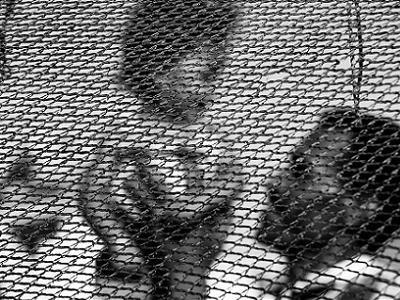
By Amany Al-Sayyed
After November’s Palestine statehood bid at the UN, the question of Palestine lies between two formations: the dream of a lasting modern solution, which is a pure colonialist fabrication; and real progress for Palestinians along a path of resistance that ends occupation.
To study these two formations, one could reflect on Fawwaz Traboulsi’s article on Gaza published in the Lebanese newspaper al-Safir after the November 2012 eight-day war. Two extraordinary threads catch the eye: blood and destruction.
Traboulsi explains that even though the destruction of the territories is a horrible ordeal, it is easy for colonial forces and their Arab allies, such as Qatar, to invest their power in this destruction. The thinking goes: reconstruct not only your homes through our petrodollars, but also orient your minds towards options less extreme than Iran and other non-US backed countries.
The colonial lie is that the symbolic power of Hamas as a movement of armed resistance can be tamed. It can be disciplined from an image of “Muslim rage,” as Bernard Lewis once wrote centuries ago, into one of modern governance fit for peace talks with Israel, just like the Palestinian Authority.
With the UN bid in place, the idea of Hamas inches “forward” in the colonial timeline from a movement representing backward, radical violence to one that supports a fabricated status of progress on the world stage. In this way, the enemy does not crush its opponent militarily, but postpones the confrontation.
I borrow Traboulsi’s analogy to explain the following: The resistance which doesn’t die or give up, wins; the enemy that crushes its opponents, loses. Hamas has not been crushed militarily in the recent battle. On the contrary, its upper military hand in the eight-day war proves the opposite. Therefore, it is not in the enemy’s interest to crush the radical “terrorists” nor end the ‘clash of civilizations’ in Gaza.
The state of Israel buys itself a few years of peace at the southern borders. Even accountability at the International Court of Justice is no real challenge since it requires both Palestine and Israel to jointly submit a judicial file that presses any charges against Israel by Palestine. In the meantime, Saeb Erekat from the Palestinian leadership tells reporters: “Yes, the occupation will continue, the settlements will continue, the crimes of the settlers may continue, but there will be consequences.”
The colonial lie is that the symbolic power of Hamas as a movement of armed resistance can be tamed.
The crumbs of statehood are labeled a glorious “birth certificate” by PA President Mahmoud Abbas. Hamas welcomes the move and calls it a “victory,” while it enjoys international recognition. Chants and celebrations from Ramallah to New York filled the air during Abbas’s speech. The colonial imaginary prevails everywhere, it seems.
Imaginaries aside, even if Hamas and the armed resistance fall short in their current strategy of resistance by allying with the US-backed Egypt and other “moderate” options, the reality on the ground has more to it.
The thread of blood shows itself for Traboulsi. He explains sharply that in the post-war Gaza scenario, the symbol of Hamas as armed resistance will reinvent itself and prosper even if the movement falls short in the near future. For every fallen fighter, writes Traboulsi, there is a son who will pick up arms just like his father. Blood, he insists, calls for blood.
At the same time, just as many similar past confrontations have shown in Gaza and Lebanon, military resistance or blood cannot be a substitute for politics.
Colonial moves are nothing new even in the Lebanese scenario towards the questions of Palestine. Take the recent amendment on the question of work permits for Palestinians in Lebanon. In February of this year, former minister of labor Charbel Nahas signed a resolution that made it easier for Palestinians to obtain a work permit. This comes after an amendment approved in August 2012 that allows Palestinians to work in all sectors in Lebanon.
While time-consuming debates continue on a political and public policy platform, as they should, the point remains that after half a century, one still hears the same colonial promise to grant full rights to Palestinians in Lebanon.
Fortunately, Traboulsi’s words reveal a real politics for the people of Gaza and historic Palestine. It is to turn the popular gaze back to the local.
Attention should be turned inwards again as opposed to the international scene, and distances bridged between the different popular demands on the Palestinian front. Traboulsi explains that a promise is to be made to Gaza that its victims’ blood will not shed in vain.
It is no coincidence that external and internal parties opposed generally to all regional intifadas try hard to pull the young generation out from the fields of organic resistance like political awareness and labor unions.
Linking back to national causes, social justice and human dignity must be held up in the face of colonial lies.
– Amany Al-Sayyed is a freelance writer and cultural activist based in Beirut, Lebanon. She contributed this article to PalestineChronicle.com. (This article was first published in al-Akhbar – http://english.al-akhbar.com.)






What on earth is this rant all about except to laud the spilling of blood, anyone’s it seems, and heaven forbid there should be any sort of peace eh? The writer idolises Traboulsi who has a brilliant mind, a kind of insane genius, but his views, writings and solutions are embittered by hatred for just about everyone and everything (including Hamas by the way), and warped by an agenda of “Marxism above all else” and so everyone is an enemy: if you oppose his ideas obviously, and if you support them then it’s obviously for the wrong impure motive.